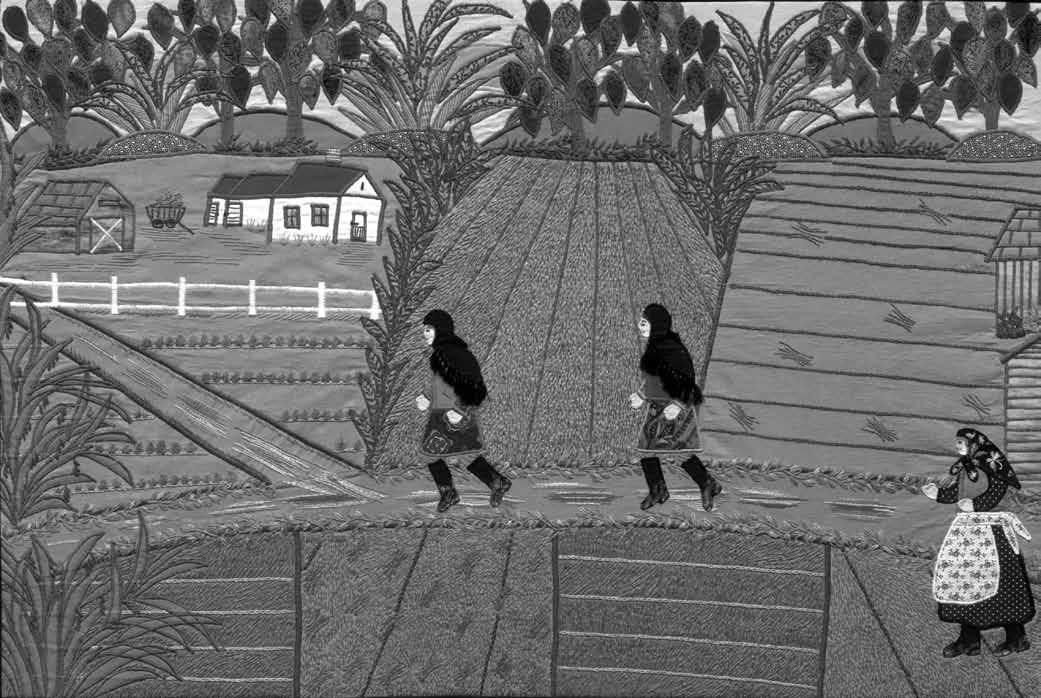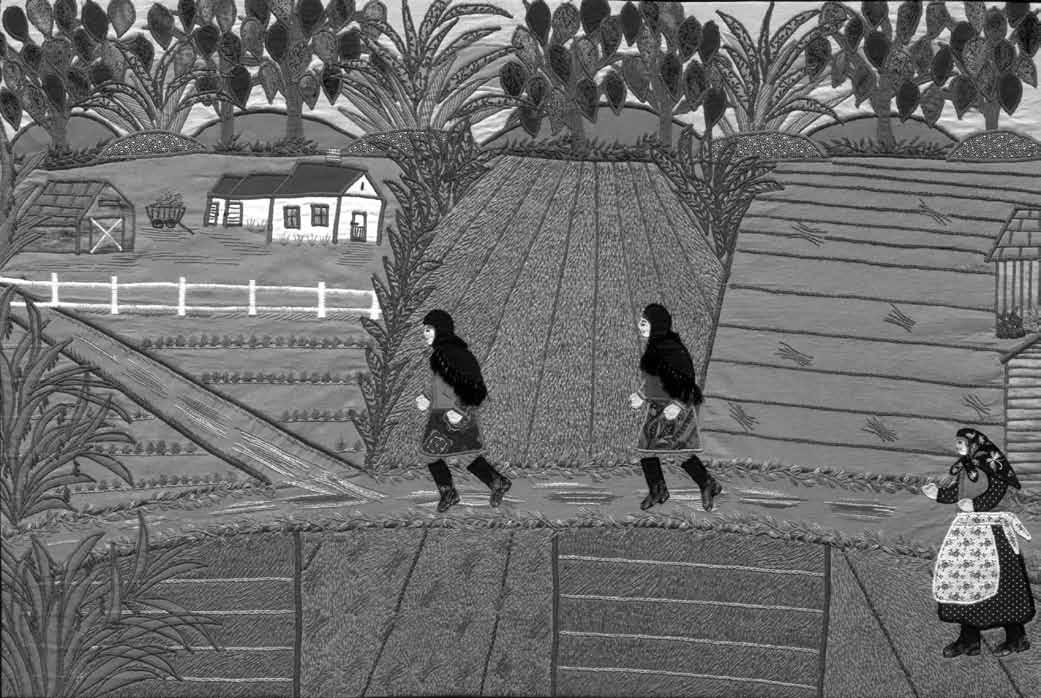
Under-the-Neath
A young woman becomes her grandmother’s teacher. Though the old woman, now near 90, has lived in Canada for over 60 years, she still speaks with a heavy Hungarian accent and an inverted arrangement of words in which her granddaughter delights. “What for do I need that?” Grandma will ask about a new skirt. “I can make it myself.” “Under-the-neath” she will say where the napkin has gone. When her granddaughter calls to say she’s on her way for their Tuesday night dinner, “Lovely!” Grandma replies. She often uses the word, and, coming from her wrinkled throat, it always sounds lovely.
“I’m too tired to write,” Grandma says to her little girl after kokosh cake and compote. “That’s why you should,” replies the young woman. “Write me that story about your Uncle Herman, the one who owned a printing press and book repair shop.” Grandma has told her how in the old country people kept things forever so they needed to get the spines of novels reglued and knives sharpened and shoes resoled. “Tell me how he didn’t give a book back until they’d read the whole thing.” But Grandma says, “For me it is too late.”
The young woman comes back the following week. After they clear the table, Grandma hands her a piece of lined paper with her large left-leaning script, barely legible. “I did my homework,” she says with pride. The story begins with Grandma’s father, a schoolteacher who was born in Serench and killed in Auschwitz. “Serench means luck,” Grandma says. The young woman already knows this and knows the town didn’t mean luck. The story goes on to list every family member, when they died and how. “Grandma, this isn’t what I asked for,” she says as kindly as she can. “I have an idea. You can write the one you love to tell about the crazy lady who went around town saying, ‘To be beautiful you have to be born beautiful!’ ”
But when the young woman returns the next Tuesday, Grandma has written the same story — each parent, every uncle and aunt and cousin and neighbor, even the cat who had no name, when and how.
Alisha Kaplan’s writing has been published in The Mansfield Revue and she is a recipient of the Lenore Marshall 2011 Barnard Poetry Prize. She lives in Brooklyn and works at a rare books store.


